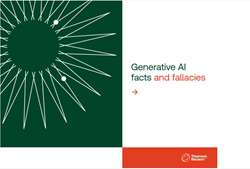 The criminal justice system theoretically operates on a presumption of innocence. An arrest booking is hardly an indicator of guilt, but try telling that to millions of people who believe being accused is no different than being found guilty by a jury. Everyone knows this presumption of guilt exists, despite it being wholly contrary to the basis of our justice system.
The criminal justice system theoretically operates on a presumption of innocence. An arrest booking is hardly an indicator of guilt, but try telling that to millions of people who believe being accused is no different than being found guilty by a jury. Everyone knows this presumption of guilt exists, despite it being wholly contrary to the basis of our justice system.
Cops know this best. A high-profile bust is as good as a guilty verdict. So it’s no surprise that they’ve increasingly turned to the greatest shaming mechanism known to man: the internet.
In a long, detailed and disturbing piece for the New Republic, Suzy Khimm examines law enforcement’s infatuation with harnessing the internet to prey upon the public’s continual presumption of guilt. It leverages the most lurid of accusations for maximum shaming, knowing that anything with “sex” in the vicinity will gather news crews like pyros to a dumpster fire.

Why Some Firms Are Leading The Market With Generative AI
A culture of innovation with strategic AI like Lexis+ AI is revolutionizing law firms by boosting efficiency and deepening client relationships.
Prostitution stings are a favorite. You can easily tell it’s a victimless crime because none of the parties involved receive any privacy protections from law enforcement. Being swept up in one of these stings means seeing your name and face splashed across a variety of news outlets while the fine print (“all arrestees are innocent until proven guilty”) is relegated to the end of the coverage, if it’s mentioned at all.
The name of the crackdown suggested a cheeky tabloid headline: Operation Flush the Johns. The other news hook was its sheer scale: 104 men arrested for trying to buy sex through the sting. At a press conference in June 2013, Nassau County District Attorney Kathleen Rice and Police Commissioner Thomas Dale unveiled the arrests with great fanfare, arraying the mug shots of all the accused men on a big poster board propped up next to the podium.
How could any self-respecting tabloid resist? “Heeeere’s the ‘Johnnies’!” screamed the New York Post: “104 Horndogs Exposed in Prostitution Sting’s Wall of Shame.” Their names and faces made the U.K.’s Daily Mail. ABC News’s New York affiliate and The Huffington Post turned the 104 photos of the men into online slide shows, leaving out the disclaimer that officials had put in small letters at the bottom of the original image: “All are presumed innocent until proven guilty.” As the articles spread online, they begat more stories and links. All of it now swamps the search results for the names of many of the men arrested, regardless of whether they were ultimately convicted.
Rarely do these stings result in large numbers of convictions. In fact, sex trafficking stings — ones that encompass years of investigations — rarely result in anything more than a handful of prison terms. Sex trafficking is almost always tied to prostitution busts, even when no evidence of trafficking can be found. But police departments and politicians love nothing more than to shame everyone involved — especially the paying customers.
This isn’t a recent development. This country’s Puritanical approach to sex has long been the focus of law enforcement shaming efforts. It’s not enough to simply arrest and charge customers and sex workers. An effort must be made to uphold the stigma. This law enforcement “tradition” traces back to the late 1970s, if not earlier. Politicians and judges, working in concert with like-minded law enforcement who felt laws and statutes weren’t doing enough to deter offenders, came up with creative ways to further punish arrestees.

Generative AI Facts And Fallacies
Four insights and misunderstandings to help demystify GenAI for legal professionals.
In 1979, New York’s mayor Ed Koch introduced “The John Hour,” in which he read over the public radio the names of men who had been convicted of buying sex. (It actually lasted less than two minutes and only aired once.) In 1988, a Brooklyn slumlord was sentenced to live in one of his buildings, where his tenants greeted him with a banner that read “Welcome, You Reptile.” In a 1994 domestic violence case, a court ordered an Ohio man to either pay a $100 fine or let his ex-wife spit in his face.
As for the 104 busts that went viral, prosecutors have nearly nothing to show for it.
In the end, 18 men pled guilty to the misdemeanor charge, 67 pled guilty to disorderly conduct, six were acquitted, including the scientist, one was designated as a youthful offender—a teenager whose records are sealed—and seven cases were dismissed. Of the 104 men originally arrested in Operation Flush the Johns, only one was convicted at trial. (As of this February, three cases are still pending, and a warrant is still out for one man’s arrest.)
That nearly everyone walked away without being charged with soliciting prostitution is lost to history. One scientist (whose story is detailed in the report) basically lost everything, even though he was acquitted. And still, law enforcement officials — along with the politicians who have made sex “crimes” their pet issue — continue to claim there’s nothing wrong with leveraging public perception to destroy lives.
Today, Rice and Nassau County both deny that Flush the Johns went out of its way to shame anyone or treat their arrests differently. The biggest difference, Rice argues, was that our culture continues to view prostitution as a “socially acceptable crime,” unlike other offenses. “Every DA’s office puts out a press release when they make arrests—there are pictures of people accused of murder,” she told me in a recent interview.
[…]
“This was not ‘shaming’ nor was it intended to be—this was enforcing the law and raising awareness of a violent industry that too many people don’t consider to even be criminal,” said Shams Tarek, a spokesman for the Nassau County District Attorney’s office. “The wealthy college-educated professional and the poor drug dealer deserve the same treatment by the justice system every day of the year; some people want different sets of justice systems for different kinds of defendants, and that’s wrong.”
But none of this is true. Law enforcement officials don’t hold press conferences to announce every misdemeanor bust and they certainly don’t do it under cutesy mission titles like “Flush the Johns.” It’s all about shaming people for consensual transactions, simply because some people feel it’s morally wrong and law enforcement knows its an easy way to ensure positive press.
Leveraging Shame And The Presumption Of Guilt To Destroy Lives And Punish Consenting Adults
More Law-Related Stories From Techdirt:
English Brewer And French Wine Group In Trademark Dispute Over ‘Champ’
FBI Plays It Coy Regarding Their iPhone Exploit
FL Senate Candidate Tries To Edit Scientology Links From Wikipedia Page, Streisanding Those Links Everywhere